
Christina Stead was an Australian novelist and short-story writer acclaimed for her satirical wit and penetrating psychological characterisations. Christina Stead was a committed Marxist, although she was never a member of the Communist Party. She spent much of her life outside Australia, although she returned before her death.
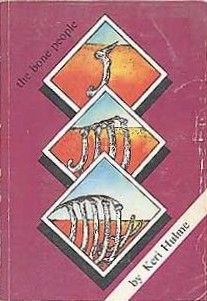
The Bone People, styled by the writer and in some editions as the bone people, is a 1984 novel by New Zealand writer Keri Hulme. Set on the coast of the South Island of New Zealand, the novel focuses on three characters, all of whom are isolated in different ways: a reclusive artist, a mute child, and the child's foster father. Over the course of the novel the trio develop a tentative relationship, are driven apart by violence, and reunite. Māori and Pākehā culture, myths and language are blended through the novel. The novel has polarised critics and readers, with some praising the novel for its power and originality, while others have criticised Hulme's writing style and portrayals of violence.
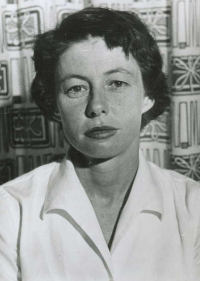
Thea Beatrice May Astley was an Australian novelist and short story writer. She was a prolific writer who was published for over 40 years from 1958. At the time of her death, she had won more Miles Franklin Awards, Australia's major literary award, than any other writer. As well as being a writer, she taught at all levels of education – primary, secondary and tertiary.
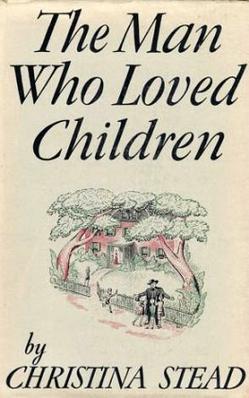
The Man Who Loved Children is a 1940 novel by Australian writer Christina Stead. It was not until a reissue edition in 1965, with an introduction by poet Randall Jarrell, that it found widespread critical acclaim and popularity. Time magazine included the novel in its TIME 100 Best English-language Novels from 1923 to 2005. The novel has been championed by novelists Robert Stone, Jonathan Franzen and Angela Carter. Carter believed Stead's other novels Cotters England; A Little Tea, A Little Chat; and For Love Alone to be as good, if not better than The Man Who Loved Children.
Denise Vega is an author of young-adult novels and of children's picture books and a faculty member at Regis University. Her debut novel, Click Here : , was released in December 2007 by Little, Brown.

Joan Elizabeth London is an Australian author of short stories, screenplays and novels.

Michelle de Kretser is an Australian novelist who was born in Sri Lanka, and moved to Australia in 1972 when she was 14.
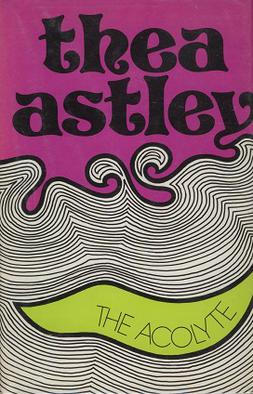
The Acolyte is a Miles Franklin Award-winning novel by Australian author Thea Astley first published in 1972.
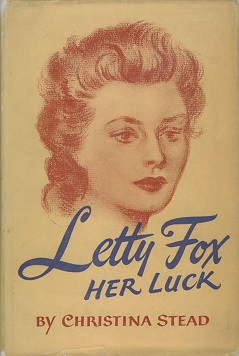
Letty Fox: Her Luck is Australian-born author Christina Stead’s sixth novel. It is a tribute to the drama of the urban environment and its role in socializing its occupants. Published in 1946, Stead wrote the lengthy Letty Fox after living in New York City for seven years. The cosmopolitan setting serves well as the theater in which Stead develops her characters through their adventures with numerous careers, love affairs, familial obligations, and sensitivities to reputation. To this end, Letty Fox has been described as “a modern picaresque novel and psychological novel at the same time.”

Romiette and Julio is a young adult novel by Sharon Draper, published in 1999 by Atheneum Books. It is an updated version of Romeo and Juliet by William Shakespeare. Many of the characters in Draper's novel closely parallel those in Shakespeare's play. The plot updates the family feud between the Capulets and Montagues to reflect modern racial tensions between African-Americans and Hispanics in the United States. The book received mixed reviews.

I'm Dying Laughing: The Humourist is a novel by Christina Stead (1902–1983). It was published posthumously by Virago Press in 1986, edited and with a preface by Ron Geering.
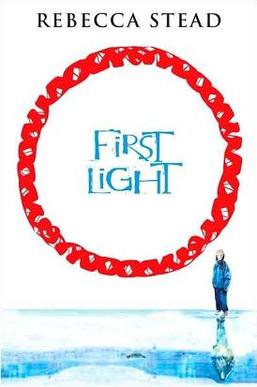
First Light is a young adult science fiction and mystery novel by Rebecca Stead, first published in 2007. The novel follows Peter, who is in Greenland with his father and mother for research on global warming, and Thea, who lives in Gracehope, an underground colony located below Greenland. First Light explains how global warming is melting Gracehope and Peter and Thea's attempt to persuade the people to leave. The novel addresses the effects of global warming as a theme.
This article presents a list of the historical events and publications of Australian literature during 1948.
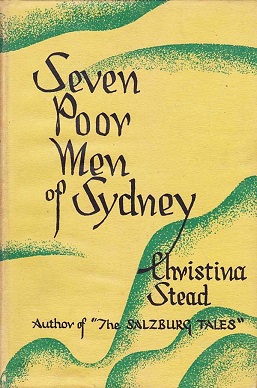
Seven Poor Men of Sydney (1934) is the first novel by Australian writer Christina Stead.

The Beauties and Furies (1936) is a novel by Australian writer Christina Stead.

House of All Nations (1938) is a novel by Australian writer Christina Stead.

The People with the Dogs (1952) is a novel by Australian writer Christina Stead.
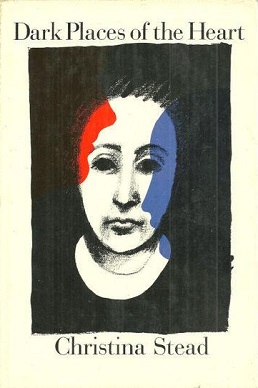
Dark Places of the Heart (1966) is a novel by Australian writer Christina Stead. This novel is also known by the title Cotter's England.
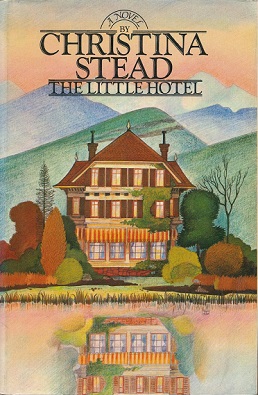
The Little Hotel (1973) is a novel by Australian writer Christina Stead.

Blood Red, Sister Rose (1974) is a novel by Australian writer Thomas Keneally.

















